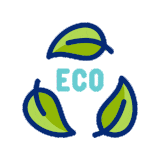USAGE OF ORGANIC FERTILIZERS
Organic fertilizers are natural nutrient sources used to ensure environmental sustainability in agricultural production. These fertilizers not only meet the nutritional needs of plants but also improve soil structure, increase water retention capacity, and support long-term soil health. The presence of organic matter contributes to the balance of the ecosystem by enhancing the activity of soil microorganisms.
The potential to reduce the negative effects of chemical fertilizers is one of the greatest advantages of organic fertilizers. They improve the physical properties of the soil by preventing erosion and promoting agricultural diversity. Additionally, the use of organic fertilizers has positive effects on food security and human health; these fertilizers, obtained from natural sources, enhance the quality of agricultural products and enable the production of healthier foods.
In conclusion, the use of organic fertilizers presents an important strategy for the agricultural sector to protect soil health and promote healthy food production.

 Bright Futures
Bright Futures

























